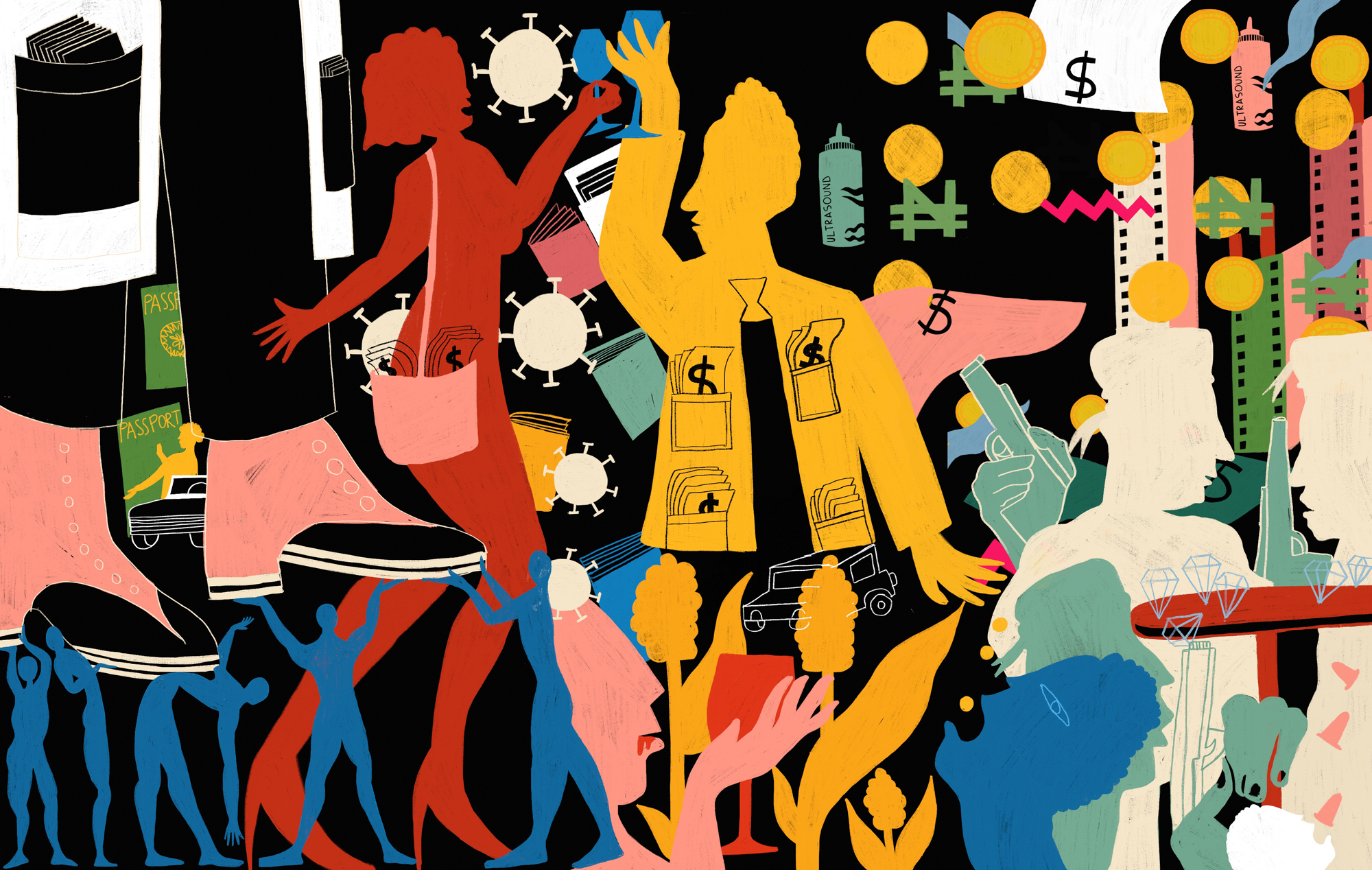That many African state systems can be called ‘kleptocracies’, i.e. states whose leaders make themselves rich and powerful by stealing from the people, is a conclusion long arrived at by most African investigative journalists. Many of the colleagues we connect with in the ZAM network have dedicated their careers, and often their lives, to exposing and hopefully helping dismantle these systems. Together, in investigations such as African Oligarchs, Public Disservice, The Associates, Risking Death to Feed your Kids, Good Civil Servants and Development Aid that Helps the Rich, published by ZAM, we have produced an impressive body of expertise on the social injustices perpetuated by African political elites and their international allies.
Last year, we went a step further, putting a new challenge to ourselves and our colleagues. What would the results be if we would go beyond the exposure of the social injustice, the lying and the thieving? What if we could find out how they do it? And perhaps more importantly: how do regimes manage to keep their kleptocracies intact, in spite of anti-corruption commissions and donor-driven good governance programmes? How can it be that even opposition parties, when they come to power, start behaving exactly like their predecessors?
It was time for The Kleptocracy Project, Part II: Anatomy of a System. The challenge to discover more than just the symptoms of theft and corruption, and to unearth the mechanisms and processes by which the kleptocrats thrive and survive, was put out to ZAM’s network. We received thirty-four responses. The ZAM Editorial College then embarked on the tough job of selecting and mentoring the most promising ideas up to fruition, all the while monitoring that our colleagues were safe. Sometimes, when a kleptocrat ruler or bureaucrat needed to be phoned for comment, but doing so was too risky for the journalist based in the respective country, the editor would do that work. We also helped with sourcing documents central to investigations, bearing in mind that this was often thwarted by the precious little data to be had in many African media environments.
Together, we ensured best in journalism practice. And we achieved results. Searching for the anatomy of kleptocracy in Nigeria, Zimbabwe, Mozambique, Mali, Zambia, Uganda and Liberia we unearthed at least two, often three or more, of the following practices:
- Unethical ‘Public Private Partnerships’ with associates that siphon off funds from state coffers.
- Unethical outsourcing to associates, resulting in duplication of work that is supposed to be done by state officials, at double or more costs to the state.
- A lackadaisical approach to public service, with all needs referred to ‘development partners’ even if there are budgets for these services within the state.
- Siphoning off of development funds
- Budgets created for (often expensive) projects with no business case just to benefit certain individual interests.
- Little to no monitoring of expenditure.
- Overpricing of contracts for goods and services to make room for kickbacks.
- Infiltration of the state by criminal syndicates.
- Taking loans that benefit the elite that are left to be repaid by citizens.
- Sabotage or diversion of (electronic) systems to facilitate siphoning off funds.
- Administrative chaos and opaqueness; no transparency; no accountability.
- Top-down nepotist management, whereby each new civil servant repays ‘favour’ to his/her boss.
- Untraceable assets owned by wealthy politicians and bureaucrats.
- Untraceable assets owned by wealthy politicians and bureaucrats.
- Complaints mechanisms for citizens non-existent or unworkable in practice.
- Victimisation of good civil servants.
ZAM has presented the first results over the past weeks, kicking off with our livecast and the Transnational Investigation on COVID aid funds. We will follow up on the anatomy of Kleptocracy findings in a set of webinars focussed on questions like: Isn’t there corruption everywhere? How should the international community engage? Who are the ‘good guys’ to support here? Should development aid stop or be redirected?
From there, we’ll move on. Stay tuned.
*NB Source material (documents, interviews) can be seen by media partners This email address is being protected from spambots. You need JavaScript enabled to view it..


